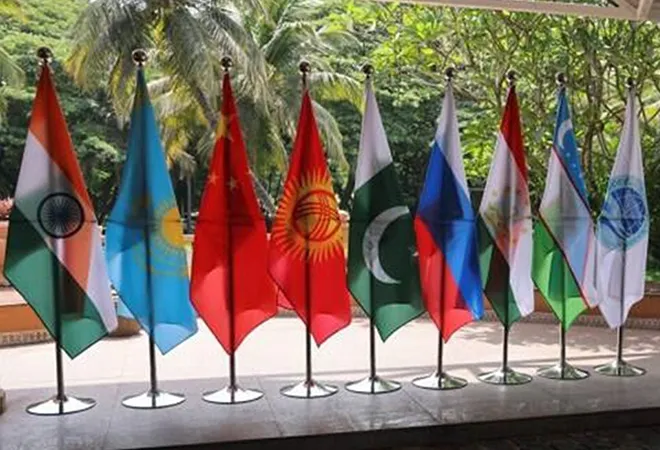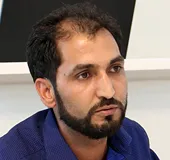-
CENTRES
Progammes & Centres
Location
For steady growth in the face of fragile geopolitical contestations, New Delhi needs access to different platforms to pursue interests in multiple geographies

SCO became an additional platform for India to pursue its geostrategic and geoeconomic interests in Eurasia based on centuries-old civilisational, spiritual, and cultural connections.SCO has been a sound platform for India to revive its ancient ties with central Asia. Central Asian Republics (CARs), which share a civilisational bond with India, have responded keenly, recognising New Delhi as a reliable partner to diversify their strategic interests. They concurred with India’s view that interconnectedness between Central Asia and South Asia will contribute to the common goals of prosperity and security. CARs admitted New Delhi into the Ashgabat Agreement, allowing India access to connectivity networks to facilitate trade and commercial with Eurasia, and also shown a lot of interest in the India-led INSTC and Chabahar connectivity projects. In 2020, Uzbekistan established a trilateral working group with Iran and India to examine the convergence between the Chabahar port, INSTC, and other connectivity projects for greater intra-Eurasian connectivity. New Delhi also provided a $1 billion line of credit to CARs for the development of infrastructure projects, like Tajikistan’s Dushanbe-Chortut highway. Similarly, the first India-Central Asia summit in 2022 stressed the inclusion of Chabahar Port and Turkmenistan’s Turkmenbashi Port in INSTC to facilitate direct trade. CARs also stressed transparency, focusing on local priorities, and upholding the sovereignty and territorial integrity of all participating countries. Recently, India and central Asia also formed a Joint Working Group (JWG) on the Chabahar Port to boost regional connectivity and trade. India also used SCO to raise the issue of Chinese ingress and its belligerence in its neighbourhood. New Delhi has stressed “respect for territorial integrity” under the SCO’s “Shanghai Spirit”. India has successfully exposed Pakistan’s state-sponsored terrorism in Afghanistan and Jammu and Kashmir, which has hampered connectivity, security and economic development of the SCO region. Pakistan, under China’s influence, has stonewalled India’s attempts to pursue its cultural, strategic, and economic interests by not allowing any regional connectivity via its territory. Conversely, China has used the hostility between Pakistan and India for its hegemonic pursuits in the SCO region through its Belt and Road Initiative (BRI). Beijing also violated India’s sovereignty and integrity in Pakistan-occupied Kashmir (PoK) by constructing the controversial China-Pakistan Economic Corridor (CPEC).
Pakistan, under China’s influence, has stonewalled India’s attempts to pursue its cultural, strategic, and economic interests by not allowing any regional connectivity via its territory.On the other hand, India has used SCO to highlight terrorism as a root cause for the lack of regional peace, security and prosperity. The SCO charter revolves around the “three evils” of separatism, extremism, and terrorism, but Pakistan’s use of terrorism as a foreign policy tool with the help of China has neutralised SCO’s potency to effectively tackle these threats. Currently, the AF-Pak region has become a safe haven for dreaded terror organisations. People’s Anti-Fascists Front (PAFF), an offshoot of Pakistan-sponsored Jaish-e-Muhammad (JeM), killed five Indian Army men in the Rajouri district of the Jammu and Kashmir on May 5, the same day when India hosted the SCO’s Council Foreign Ministers (CFM) meeting in Goa. In November 2021, Indian National Security Advisor Ajit Doval hosted the third regional security summit on Afghanistan and invited all the members of SCO, including Iran. However, Pakistan and China did not attend. Islamabad even deplored these consultations as a “futile attempt” and called New Delhi “a spoiler” that “cannot be a peacemaker”. Instead, both Pakistan and China held the “Troika Plus” talks with the US and Russia on Afghanistan in November 2021. The China-Pakistan axis has always used SCO against India’s regional interests. Owing to the fragile global geopolitical environment, the Russia-Ukraine war has made SCO a China-created, China-dominated and China-led multilateral forum used by Beijing for its parochial geostrategic, geoeconomic and regional interests. With Moscow’s shrinking ability to balance hegemonic and belligerent Beijing, questions are rising about Russia’s ability to act independently. Russia’s declining influence and China’s increased dominance has made navigating this China-led anti-West grouping difficult for New Delhi.
Owing to the fragile global geopolitical environment, the Russia-Ukraine war has made SCO a China-created, China-dominated and China-led multilateral forum used by Beijing for its parochial geostrategic, geoeconomic and regional interests.India is the fastest-growing economy and an emerging pole in the current multipolar global order. For steady growth in the face of fragile geopolitical contestations, New Delhi needs access to different multilateral platforms to pursue interests in different geographies. India’s wider economic and strategic priorities have shifted it focus on its northern borders with Pakistan and China to the globally contested maritime space of the Indo-Pacific. SCO, which is increasingly becoming a China-driven grouping, is marred with divergences and faultlines among the member countries on many pressing issues, including narcoterrorism, connectivity, border disputes, sovereignty, and regional stability. Underlying friction between several SCO members owing to the current geopolitical contestations has posed challenges to the strategic autonomy of India. While continuing its SCO membership, India must prioritise strengthening the India-central Asia dialogue to develop mutually-beneficial and meaningful cooperation with CARs for increased regional security, connectivity, trade, and cultural ties.
The views expressed above belong to the author(s). ORF research and analyses now available on Telegram! Click here to access our curated content — blogs, longforms and interviews.

Ayjaz Wani (Phd) is a Fellow in the Strategic Studies Programme at ORF. Based out of Mumbai, he tracks China’s relations with Central Asia, Pakistan and ...
Read More +
Professor Harsh V. Pant is Vice President – Studies and Foreign Policy at Observer Research Foundation, New Delhi. He is a Professor of International Relations ...
Read More +